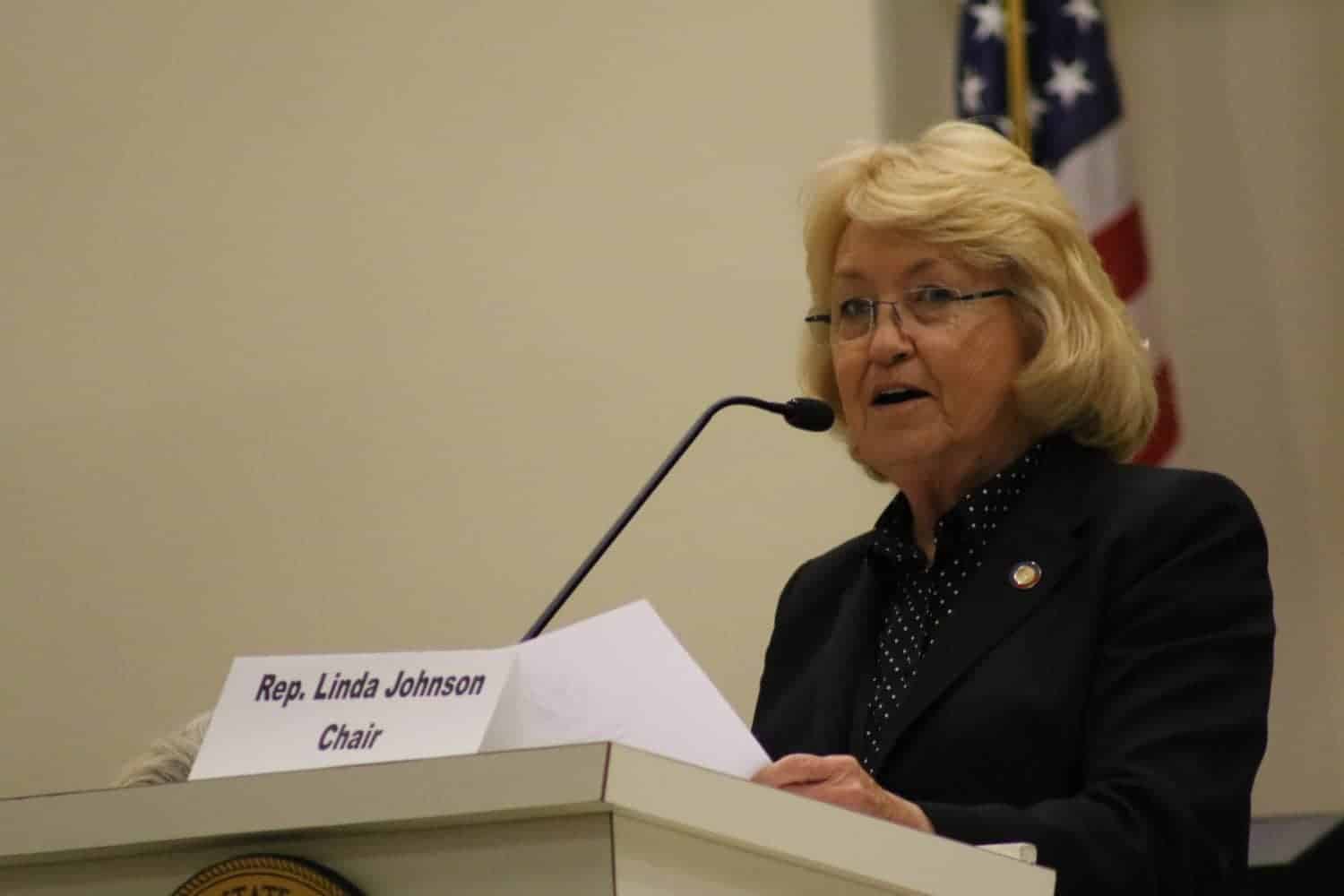A group of lawmakers released education policy recommendations Tuesday, including an extension of the state’s virtual charter pilot program, training for the education department’s licensing staff, and requirements around the instruction of cursive writing and multiplication tables.
The joint legislative education oversight committee, which meets between legislative sessions, unanimously approved its report to the General Assembly ahead of the start of the short session this month. Though the document is a draft, only technical changes will be made in the final version.
The report laid out eight recommendations; four have drafts of proposed legislation attached:
- The committee recommended the virtual charter school pilot program, originally set to end in 2019, be extended another four years, ending in the 2022-2023 school year. This would change the current statute around the program.
The report says the committee wanted more time to assess the online charters’ effectiveness, which has been questioned after both schools received low performance grades last year. The schools offer unique choices to families and students with specific needs, according to the committee’s recommendation.
“While the committee acknowledges that student achievement outcomes have not been as high as the committee would have wanted, the committee also recognizes that the virtual charter schools provide an alternate choice to traditional public school and traditional charter schools for many families throughout the state,” the report reads.
Rep. Craig Horn, R-Union, a co-chair of the committee, echoed the report’s sentiment.
“We learned some lessons in the first two years that are being applied now, and as a consequence, we’re seeing why virtual charter schools are — should be and are — an important part of the options available to fill specific needs of certain kids,” Horn said. “So let’s now that we’ve kind of gotten over the really rocky parts of start-up, let’s give them a few more years and find out, ‘Is this really as good as we now begin to think this is?’ Nobody’s yet convinced that this should be a permanent offer.”
- The report noted the committee’s support for laboratory schools, which are formed as partnerships between University of North Carolina institutions and local school districts.
“The committee looks forward to ongoing information about the progress of the laboratory schools particularly in improving student achievement outcomes and enhancing educator preparation,” the report says.
- The report also highlighted the committee’s support for the North Carolina Teaching Fellows Program, which pays tuition for education students who promise to teach a STEM (science, technology, engineering, and math) subject or become a special education teacher. This version of the program came about in 2017 after the original well-known program was ended in 2011.
- The committee is proposing legislation to conduct a cross-training for Department of Public Instruction (DPI) staff who work around licensure. There have been concerns around the length of time it takes the department to process teacher licenses. An audit last year found challenges around the online application system and confusion among local district staff, teachers, and those at DPI.
Committee member Rep. Larry Bell, D-Duplin, Sampson, Wayne, said he thinks the training will particularly benefit lateral entry teachers — individuals entering the teaching profession without a teaching background.
“They can’t find anyone who will give them the answers that they need and help them to prepare to come into the school system,” Bell said.
The draft bill also requires an annual report to the committee outlining how the training program affected the speed of licensure processing and staff efficiency. Horn said there will likely need to be funding attached to the training program, which he hopes improves the situation.
“I think we’ve made it very clear to DPI that they need to kick up their game on licensure,” he said.
- The report said the committee backs the work of Schools That Lead, a professional development organization for teachers and principals. The non-profit organization’s website says it works to “enable teachers to lead school improvement by studying student learning in each other’s classrooms.”
- The report also praised the Eastern North Carolina STEM program (ENC STEM), a program for underserved students in the eastern part of the state that encourages STEM education and careers.
- A proposed draft bill was included in the report that would establish two subcommittees — one appointed by the joint education committee and one by the Joint Legislative Oversight Committee on Health and Human Services, to study the needs of the state when it comes to medical education and residency programs. The legislation would require statewide plans from the subcommittees, with interim reports due to their oversight committees in November 2018 and final reports due in March 2020. The draft of the legislation says the legislature is particularly interested in access to health care in rural parts of the state.
- The committee’s final recommendation would require an annual report to the committee from the State Board of Education and DPI on school districts’ compliance with cursive writing and multiplication table instruction requirements already in law.
A recent report from the state board, staff said, did not provide enough detail to satisfy the committee. Rep. Larry Pittman, R-Cabarrus, expressed his frustration at Tuesday’s meeting with his perceived lack of instruction of these skills. Pittman said he may propose an amendment to the legislation to “put some teeth in it.”
“I’m at the point of saying, ‘If you’re not obeying the law that’s already in effect, there needs to be some funding consequences,'” Pittman said.
The value of cursive writing has been debated, with some arguing it improves comprehension and brain development and others saying cursive is an antiquated tool. Horn said he has noticed some of his pages cannot sign their names in cursive.
“We’re trying to send a message to our LEAs through DPI that we’re serious about cursive writing,” Horn said. “This wasn’t just someone’s funny little idea. There is brain science here and we’re serous about it.”





